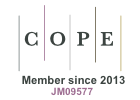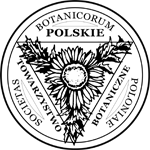Abstract
Human organism is exposed to harmful action of free radicals which are produced as well endogenically as egzogenically. The oxidation activity of free radicals can lead to the conversion of systemic biomolecules. As a consequence, there is a threat of, many severe diseases. Antioxidative agents which occur in natural products (also in honey) raise a possibility of protection against the harmful action of above mentioned radicals. Polyphenolic compounds - flavonoids, phenolic acids and ascorbic acid - are the most important antioxidative agents. The research of many authors proves that honey, given orally, shows an antioxidative activity. The level of antioxidative agents in serum after the consumption of honey is high and surpasses the antioxidative activity of tea. Dark honeys (honeydew and heather) have considerably higher antioxidative activity in comparison to light ones (acacia, lime, polyfloral).
Keywords
honeys; antioxidant capacity; polyfenolic compounds






